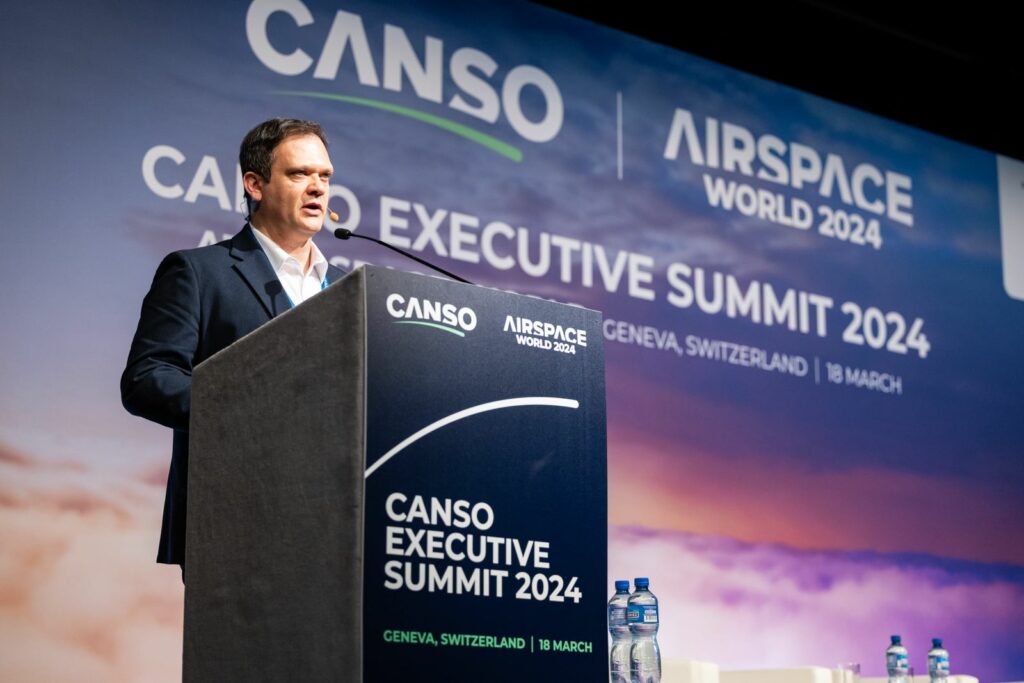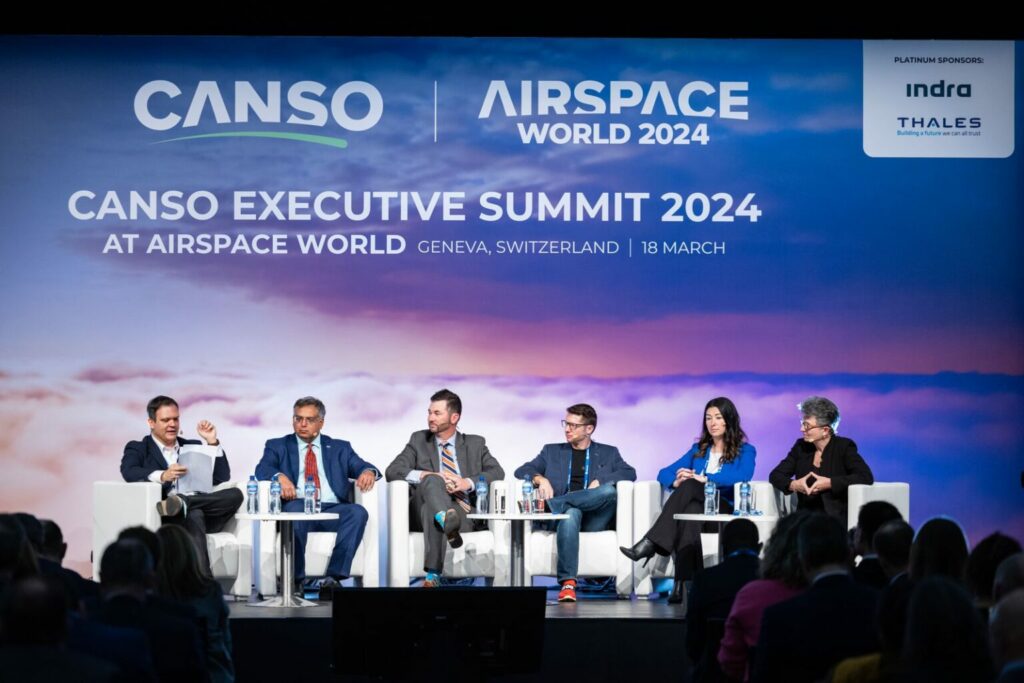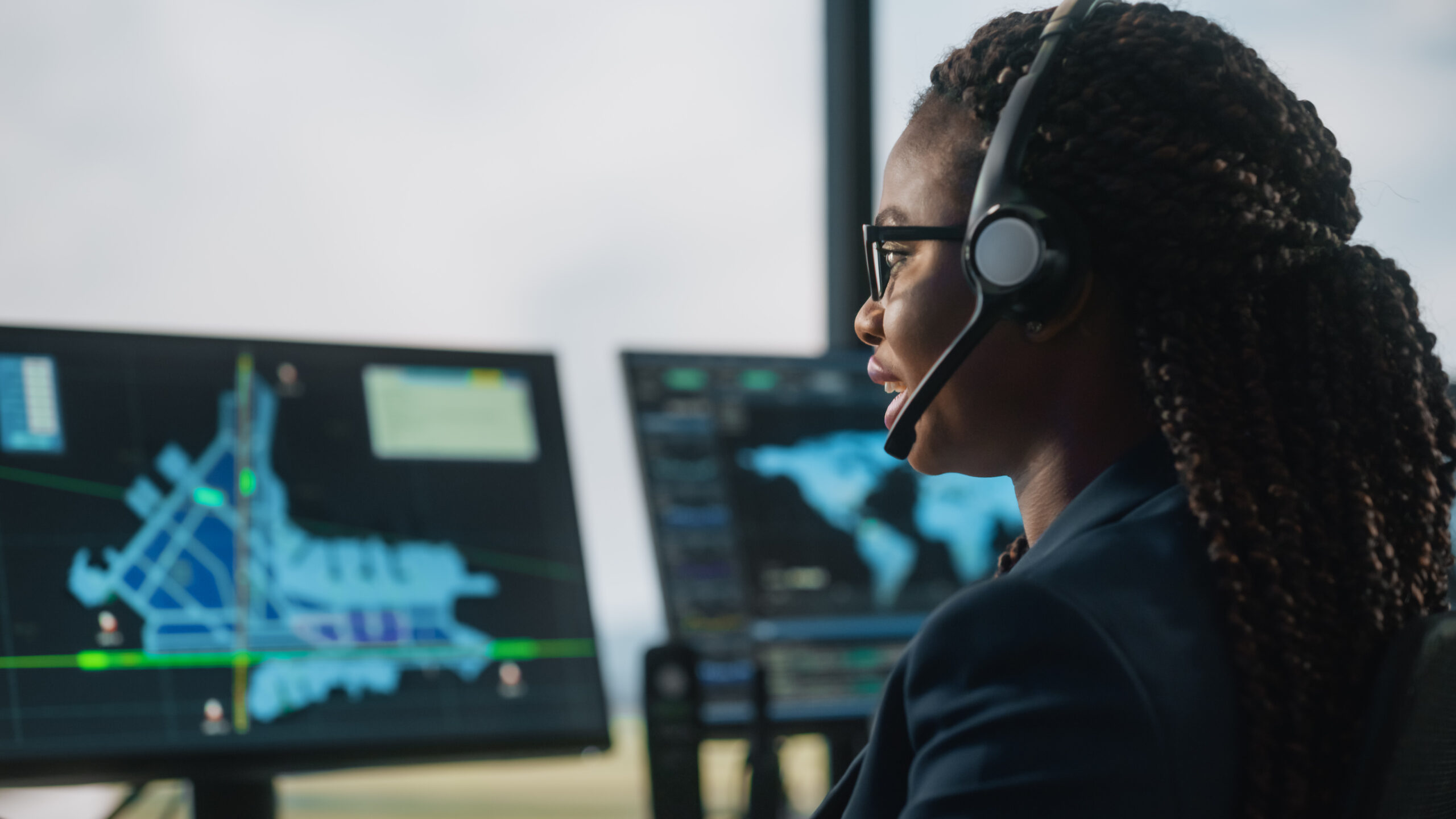The reality of artificial intelligence
Artificial intelligence (AI) has become a much-hyped concept in recent years, touted as a transformative technology for aviation and many other industries.
At the CANSO Executive Summit 2024, delegates heard about AI opportunities and challenges in air traffic management from experts in the field. A keynote presentation by Dr. Mark Esposito, Professor of Strategy and Economics, Hult International Business School and advisor to governments was followed by a high-level panel discussion.

Dr. Esposito began by explaining the World Economic Forum’s Great Reset that began in 2020, which essentially aims to determine strategies that are relevant to the post-pandemic world.
He noted that beyond the headlines of various crises, world trade and connectivity is increasing. But the pain points in this complex structure can’t be managed by old tools. And this is where AI comes in. Dr. Esposito said that, by 2030, the world will begin what he called Globalisation 2.0 or the Cognitive Economy. Everything will shift to favour those organisations that can optimise human-to-everything relationships.
The Cognitive Economy has many drivers. It was noted, for example, that the pandemic pushed internet use to new highs, with increases of 30 per cent in many countries. This leads to increasing amounts of data. As it stands, only 0.5 per cent of data is analysed, meaning data waste is huge. But, as data becomes structured and analysed – in other words, data quality improves – trust will increase and so will trust in AI.
On the panel, Marie-Pier Berman, Chief of Operations, NAV CANADA, made the point that people accept human error but not computer error. This does change over time, however. Berman cited the example of humans operating the first elevators so that people would be confident enough to use them. Now, a human operating an elevator would make people think that something was wrong.

This raises the fear that AI will replace humans. But Dr. Esposito stressed this was not the case and suggested that AI should be thought of as human augmentation. It is there to support human decision-making rather than replace it.
Nevertheless, it was accepted that traffic is increasing to levels that will certainly necessitate the use of AI across all ATM operations.
The panel agreed that it was still early days in terms of integrating AI into safety-critical systems. Initial uses are likely to centre on such topics as runway configuration, flow management and training. These would all reduce the burden on the human.
Parimal Kopardekar, Director, NASA Aeronautics Research Institute, pointed out that there are only so many parameters that a human can consider and arrive at a decision in a reasonable time frame. AI can quickly do all the hard work and allow a human to make an informed decision.
He also explained that there are two possible types of decision that AI could make. A strategic decision, such as long-term capacity planning is easily reversible if different factors come into play. Tactical decisions, however, are immediate and non-reversible. And this is where humans must always play a role.
Kopardekar also explained that a good architecture would see a completely deterministic safety module sit on top of AI to ensure that AI never did anything that threatened safety. Another safeguard is to ensure visibility on what the AI is learning so that experts can step in to correct it if necessary before it starts to incorporate these lessons in its programming. “We need to put on guard rails,” he said.
The panel ended with discussions on collaboration and certification. The former is essential to establish rules that are followed globally while the latter has working groups examining the thorny issue as the industry has not had to deal with non-deterministic systems before.
“Boundaries will change, and this will be a constantly evolving space,” concluded Dr. Esposito.
The Panel
- Eduard Gringinger, Principal Data Scientist, Frequentis
- Juliette Mattioli, Senior Expert in AI, Thales
- Kevin Hightower, VP of Product, Cirium
- Marie-Pier Berman, Chief of Operations, NAV CANADA
- Mark Esposito, Professor of Strategy and Economics, Hult International Business School
- Parimal Kopardekar, Director, NASA Aeronautics Research Institute
You can listen to Dr. Esposito’s speech and a Q&A with CANSO Director General, Simon Hocquard in a special edition of the new CANSO Air traffic Management Podcast, available on Spotify, Apple, and all the major Podcast platforms. Listen here.

